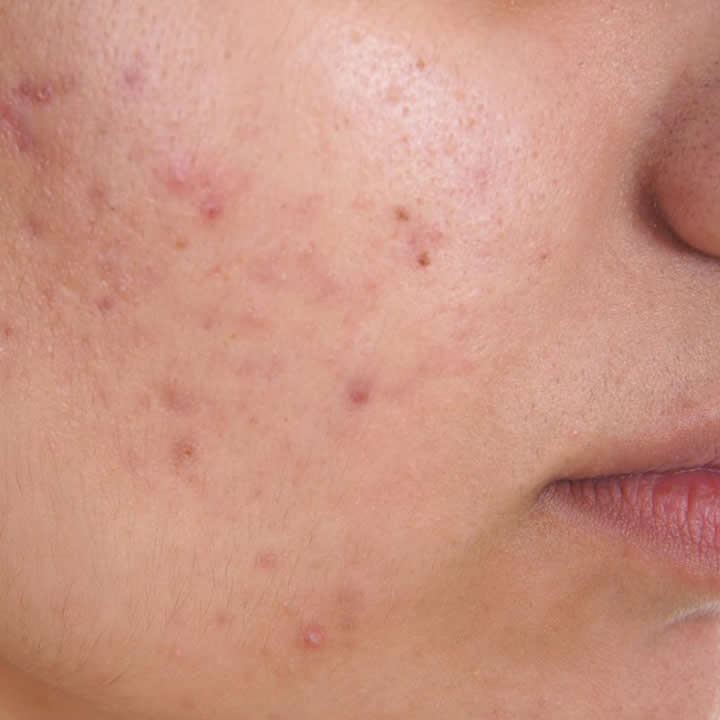According to the Harris Poll survey, 71% of teens feel that acne negatively affects their body image. Also, 67% say that acne hurts their self-esteem. Acne and pimples are common skin conditions in teens. But some go through adulthood who still have acne problems. Research says that 85% of females suffer from adult acne. But the problem stays the same for both teens and adults. Acne hurts the way we see ourselves.
Essential facts about the causes of acne
Acne generally is caused by a clogged and infected follicle resulting in inflammation. Hair follicles are connected in the sebaceous glands that produce sebum or natural oil out of the pores. This means that sebum gets trapped due to clogged follicles. Genes are another common reason that increases the risk of acne. But most acne starts with triggers.
What other triggers cause an acne breakout?
Hormones
Hormones are body messengers that control body functions. And acne breakouts due to excessive secretion of the hormone androgen. Hormone fluctuation can also trigger acne breakouts. This happens as women age, during menstruation, pregnancy, postpartum period, and during breastfeeding.
Skin irritants
Irritation through skin contact can also cause acne. These harsh substances could disrupt your skin’s first layer defense, leading to inflammation, dry and clogged pores. Skin irritants include harsh chemicals, environmental pollution, shaving, UV rays, among others.
Stress
Stress results in a weakened immune system, unbalanced hormones, and increased inflammation response. Cortisol, known as the stress hormone, causes anxiety and changes in the menstrual period.
Food
Research implies that there is a relationship between food and acne. It says that glycemic excess can trigger acne. Glycemic foods are carbohydrates, such as bread, cereals, pasta, cakes, and milk. Carbohydrates also increase blood sugar, which results in increased hormone and sebum production.
Medications
Some medications can also cause acne breakout as a side effect. These medications include corticosteroid, some contraceptive agents, anti-epileptic drugs, and anti-tuberculosis drugs.
Different ways for safe acne removal
There are a few ways to treat acne. But to ensure safety, it’s best to consult with a dermatologist. Because the worst thing about removing acne is the scar left in its place. First, a dermatologist needs to identify the seriousness of the acne breakout. Other considerations also include skin type and condition. For example, sensitive skin responds and heals better with creams. Dermatologists prescribe the lowest possible dosage of medication or topical treatment. They also teach the right procedures, what to expect, and the things to avoid while on treatment.
Topical non-prescription medicine
Mild acne is safely treated using over-the-counter topical treatments. It can be in the form of gels, lotions, creams, or pads. Active ingredients include benzoyl peroxide, resorcinol, salicylic acid, sulfur, and spironolactone. This topical medication prevents acne through different manners. They prevent bacterial growth, remove dead cells, or remove extra oil. They also prevent pores from getting clogged or block excessive hormone production.
Oral medication
Severe acne breakouts warrant the need for oral medications. It’s usually prescribed in combination with topical medicines. A dermatologist may prescribe antibiotics to stop bacterial growth, birth control pill to control hormone overdrive, or isotretinoin to help control oil production.
Clinic-based treatment
A dermatologist may also suggest treatment procedure done in a clinic. These include cortisone injection to prevent cyst inflammation, laser to treat blemishes, chemical peels to remove dead cells, or surgical removal of persistent cysts.
The safest way is to be kind to your skin
We cannot stress it enough that prevention is always better than cure. Even simple lifestyle changes can have a significant impact on our skin condition. A health and beauty blogger, MummyJene says that thorough cleaning before bedtime helps achieve perfect skin. Another way to maintain a clean face is to avoid adding more oil to the skin. Remember to not touch your face or to keep your hair away from the face as much as possible.
Also, choose a skincare routine that will fit your specific skin condition. Be sure to use products that are gentle to the skin. There is no one perfect answer for acne removal. And it may take some time before finding the right treatment. But the key is to avoid all possible triggers and to embrace a healthier lifestyle.

